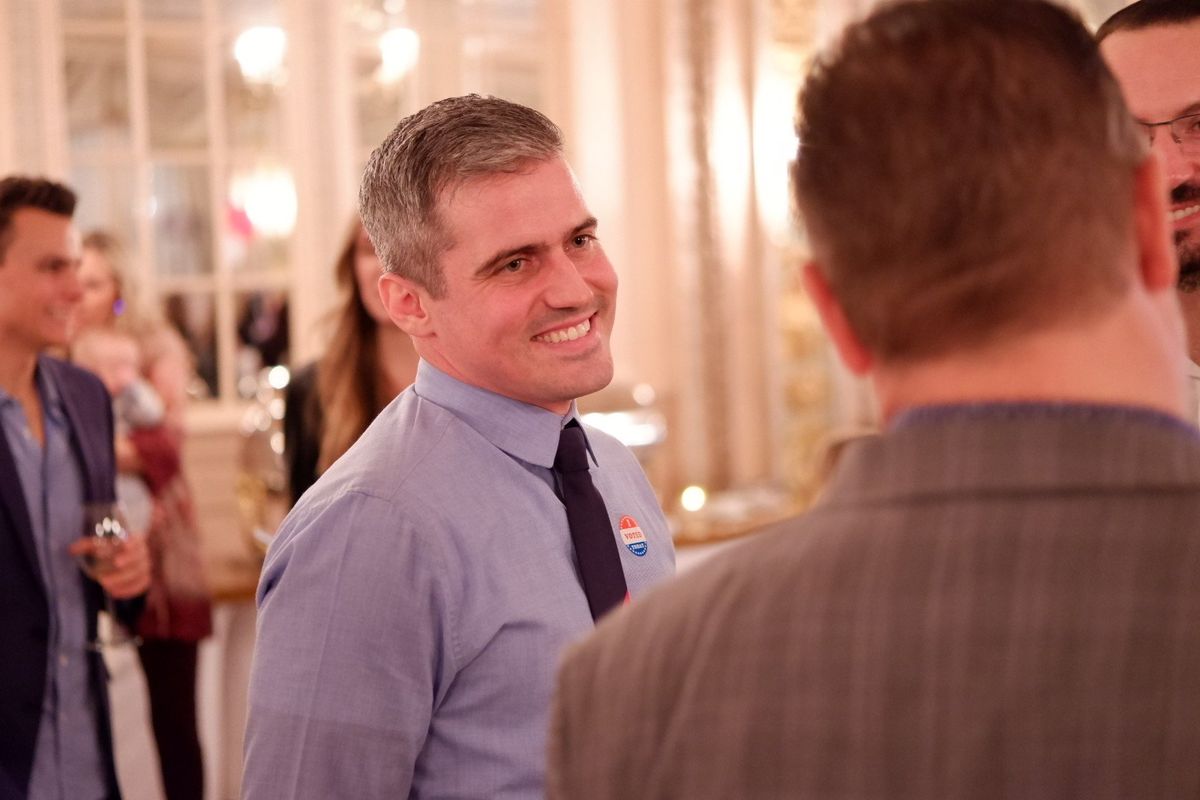Is northeast Spokane becoming conservative? What to make of this month’s election results

It was beginning to feel almost like a cycle: a conservative in one election, then a progressive in the next two years later.
Now, for the first time in more than a decade, northeast Spokane won’t have a progressive voice on the City Council.
The tangible impact of that shift remains to be seen, as it won’t actually swing the balance of the entire City Council to a conservative majority.
Still, conservatives in northeast Spokane take this week’s victory as a sign that their message – which focuses on issues like beefing up public safety and bringing in more jobs – is resonating with voters.
Jonathan Bingle cruised to victory on election day, winning 56% of the vote over opponent Naghmana Sherazi, according to unofficial election results. Bingle will replace the outgoing Council Member Kate Burke, who is widely believed to be the City Council’s most liberal member.
That might signal something of a districtwide mandate for conservatives in northeast Spokane, which will now be represented by Bingle, a small business owner and former pastor, and Michael Cathcart, the executive director of a pro-business advocacy organization.
“Public safety, affordable and attainable housing, good jobs – I think that’s what people want in the city. I think all of that really resonated,” Bingle told The Spokesman-Review on election night.
Amber Waldref, who leaned progressive more often than not during her two terms representing District 1, disputes the notion that it’s such a simple binary.
“You kind of have an independent streak, and I think even I to some degree kind of fit that format,” Waldref said. “I think I was definitely more progressive around a lot of different issues around wanting to invest in environmental protection and sustainable housing policies, but on the other hand … I was also more conservative around budgeting.”
Council members run as nonpartisan, even if their political leanings are clear, Council President Breean Beggs noted. They don’t caucus by party like state legislators. Beggs resists the idea that progressives have a six-to-one majority on the current council.
“There’s this continuum, and everyone’s all over the place,” Beggs said.
Burke and Cathcart are on opposite ends of that spectrum in many ways, but Beggs noted that they’ve often voted the same way on housing issues.
“They might have different reasons, different values, but they get to the same place,” Beggs said.
So what makes a good candidate in a district that has elected a politically diverse array of representatives, from Burke to Councilman Mike Fagan?
Beggs said Bingle “seems to have a real heart for people.”
“I grew up in a very evangelical home where we really worked with people who were struggling and in poverty, that was part of our theology, and he seems to share a lot of that,” Beggs said. “I think he may be somewhat of a bridge from the conservative side of the political spectrum to taking care of people where they are and with not a lot of judgement.”
To Waldref, community connection matters.
“There is something to be said for candidates that have a clear long-term interest in the community. You haven’t seen Bob (Apple) go off – he’s not governor,” Waldref said.
To Apple, the public sees a lack of progress on the same issues the city was dealing with back when he was in office, like homelessness and crime.
“They want change, and it’s not happening from the liberal side,” Apple said.
For example, Apple said, the city has a drug addiction problem. It can either invest in bolstering treatment options or throw more people in jail, but “right now we’re doing neither.”
Cathcart agrees that concerns over public safety are significant; he made it a centerpiece of his campaign in 2019, in which he bested another conservative for the seat.
Waldref expressed concern about the amount of money spent on the race by independent organizations.
“The biggest concern and the biggest change has been the influx of maybe one or two industries having so much influence,” Waldref said. “If anything has changed in District 1, that has been the biggest change.”
While Bingle and Sherazi were close in terms of campaign fundraising and spending, the Spokane Association of Realtors and its associated political action groups spent more than $100,000 in support of Bingle. The Spokane Good Government Alliance, a PAC primarily funded by local businesses and business leaders, put more than $50,000 behind Bingle.
In a district where the average income is less than that of others, Waldref said potential candidates already face barriers to running for office that an influx of independent money only exacerbates.
“I hope that in future elections we can make sure we can get input from a broad swath of groups and residents and businesses,” Waldref said.
Looking forward, Cathcart hopes northeast Spokane will have a bit more say in major council decisions. Right now, he noted, there is no District 1 representative on either its three-member American Rescue Plan or city budget workgroups.
Beggs said those assignments are based on several factors, including seniority and subject matter expertise. At the end of the day, the majority of council still has to make funding decisions, he noted.
Committee assignments have yet to be made for 2022.
“All of that will be up for discussion, and I’ve definitely heard Council Member Cathcart and his druthers,” Beggs said.